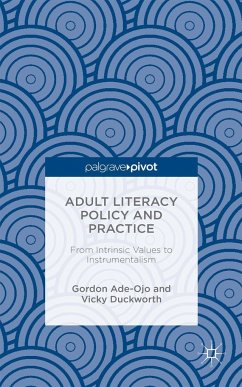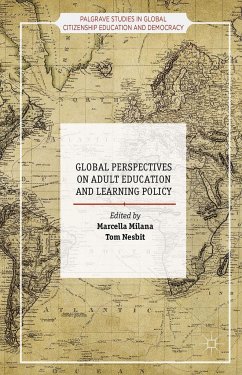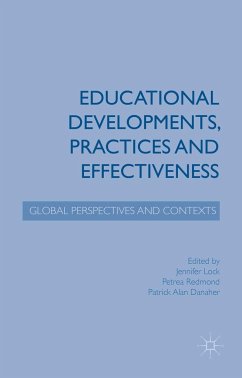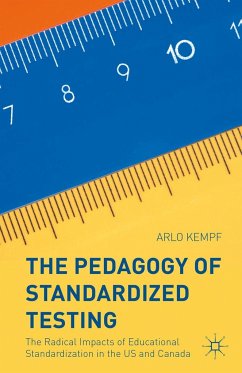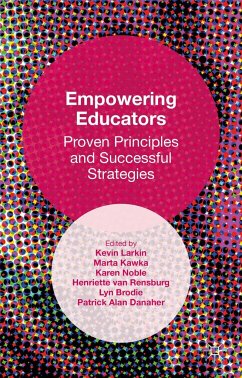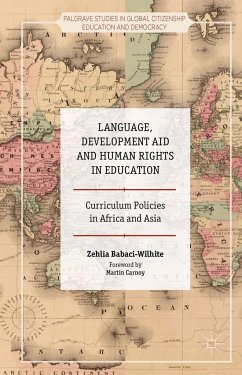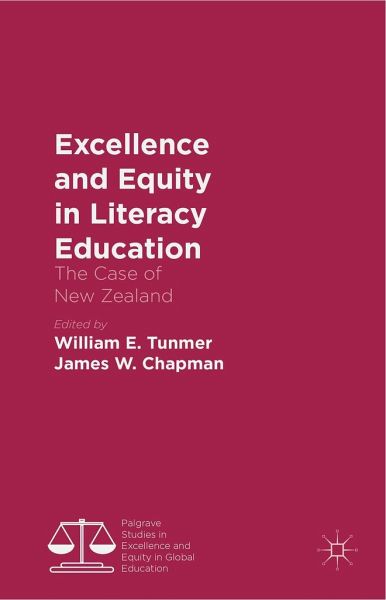
Excellence and Equity in Literacy Education
The Case of New Zealand
Herausgegeben: Tunmer, William; Chapman, J.

PAYBACK Punkte
19 °P sammeln!
Despite several efforts by the New Zealand government in the 1990s this book suggests that their national literacy strategy has failed to reduce the literacy achievement gap. The major contributing factors are examined and alternative effective strategies are suggested to achieve excellence and equity in New Zealand's literacy education.
Literacy is arguably the most important goal of schooling as, to a large extent, it determines young children's educational and life chances and is fundamental in achieving social justice. New Zealand's literacy education programme has long been regarded as one of the world's most successful approaches to teaching literacy skills to young children. Excellence and Equity in Literacy Education questions this widely held assumption. In the late 1990s the New Zealand government developed a national literacy strategy aimed at reducing persistently large inequities in literacy achievement outcomes. The chapters in this edited volume present evidence indicating that the national literacy strategy has failed, examine the major factors responsible for the continuation of New Zealand's comparatively wide spread of scores in literacy achievement, and describe the most effective strategies for reducing the literacy achievement gap and achieving excellence and equity in New Zealand literacy education.





